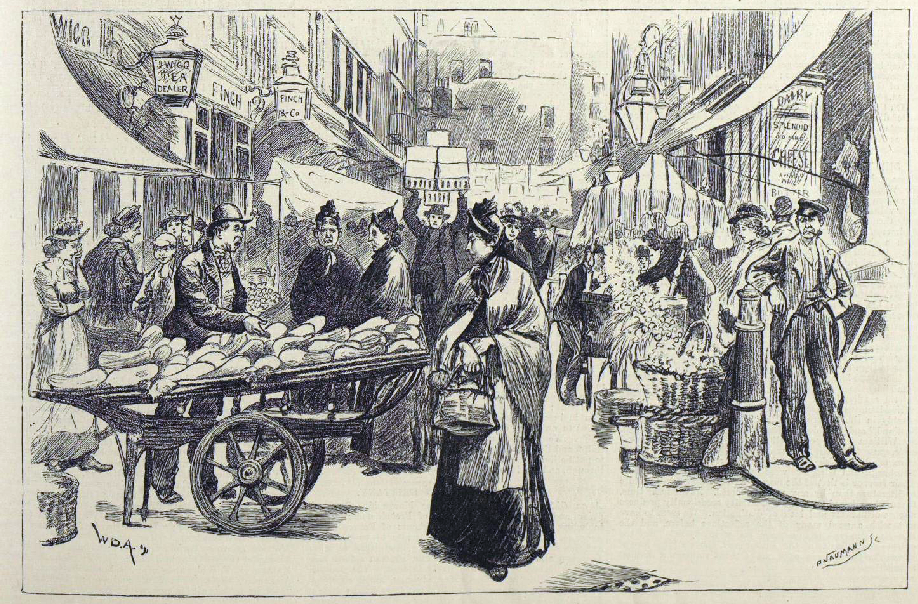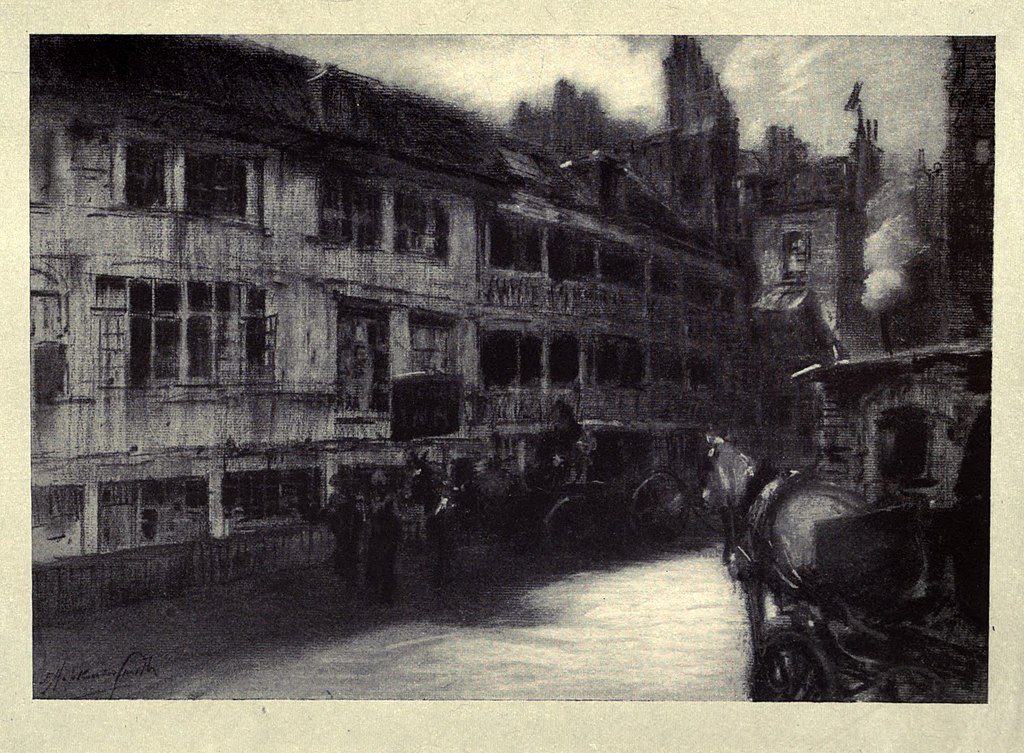Tucked between Lincoln’s Inn Fields and the Strand, Clare Market was once one of London’s busiest and most colourful markets. Founded in the seventeenth century, it bustled with butchers, greengrocers, fishmongers and costermongers who filled its narrow lanes with stalls and carts. Shoppers could buy herrings or mackerel depending on the season, or pick up fresh vegetables at surprisingly low prices. The noise and the jostling crowds lasted late into the night, creating a vibrant, if chaotic, atmosphere.
By the late nineteenth century, however, the market had fallen into decline. Its once thriving trade had become shabby, and within a couple of decades it disappeared entirely, its place taken by the newly established London School of Economics.
It was in this fading marketplace that a grim incident occurred on the night of 27 September 1888; a story that, coincidentally, unfolded during the very week when Whitechapel was terrorised by Jack the Ripper.
George Best, a 60-year-old waiter who lived on Stanhope Street, had finished work that Thursday evening and had been drinking heavily. In his intoxicated state he began shouting insults—described in court as “vulgar and filthy language”—at his neighbour Alice Dowden, who stood at her window with her two children.
Alice called for her husband William, a 24-year-old porter, to defend her. The confrontation between Best and Dowden quickly turned violent. Witnesses disagreed about what exactly happened: some swore that Dowden struck Best in the face, while others insisted he had merely thrown up his arm to ward off an attack. Whatever the truth, the quarrel ended suddenly and fatally. Best stumbled backwards, fell against the kerbstone, and suffered a fatal head injury.
Neighbours rushed him to King’s College Hospital on a barrow, but he was pronounced dead on arrival. Dowden was arrested and charged with causing his neighbour’s death.
The inquest jury’s decision was pivotal. They returned a verdict of death by misadventure, ruling that Dowden’s actions were not criminal. A magistrate dismissed the case the following week. One newspaper reported that the courtroom applauded the decision, though the enthusiasm was promptly silenced by the court usher.
Clare Market is long gone, its lively chaos replaced by academic buildings and quiet courtyards.
Caption: Clarke Market in 1891 (from The Illustrated London News)




